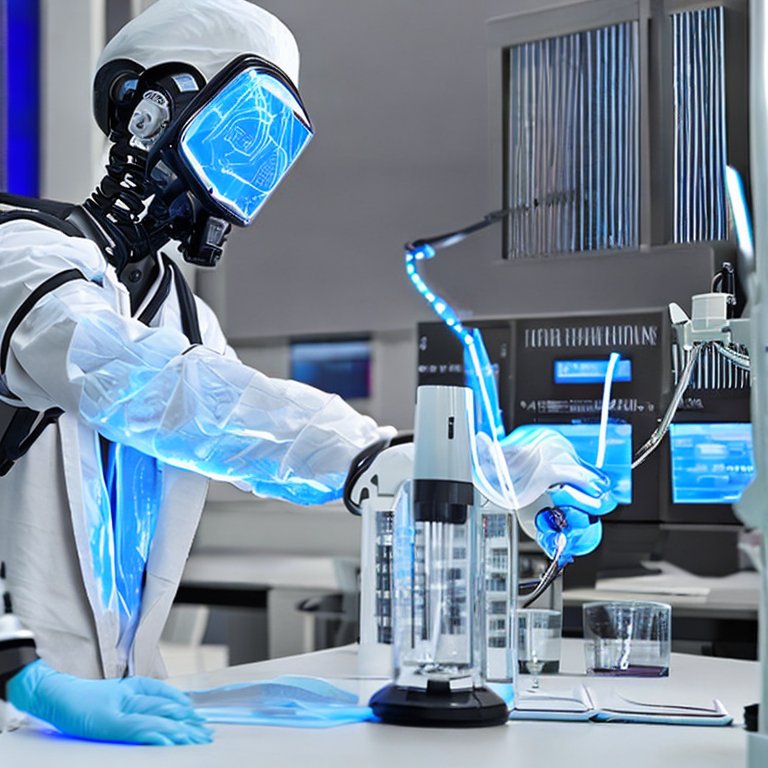Science has always been a relentless quest for knowledge, a journey where researchers explore the unknown, seeking answers to the most profound questions about our world and beyond. In this unending pursuit, the tools of science have evolved significantly over the centuries, from simple microscopes to cutting-edge particle accelerators. Today, a new and powerful ally has emerged to aid scientists in their endeavors: Artificial Intelligence (AI).
The Marriage of AI and Science
Artificial Intelligence, often referred to simply as AI, is a branch of computer science that focuses on creating intelligent machines capable of learning from and making decisions based on data. In recent years, AI has found its way into the heart of scientific research, revolutionizing the way experiments are conducted, data is analyzed, and discoveries are made.
Enhancing Experimentation
Laboratory research is the backbone of scientific discovery. AI has made significant inroads here, transforming the way experiments are designed and executed. AI algorithms can predict potential outcomes, helping scientists optimize their experiments and reduce the time and resources required. This not only accelerates the research process but also minimizes the risk of failed experiments.
Moreover, AI-driven robotic systems are now capable of performing a wide range of tasks in the laboratory, from conducting repetitive experiments with high precision to handling hazardous materials that would be dangerous for humans. This not only improves efficiency but also ensures the safety of researchers.
Data Analysis at Scale
In the era of big data, scientific experiments generate vast amounts of information. Analyzing this data manually is not only time-consuming but often impossible due to its sheer volume. AI-powered data analysis tools can sift through mountains of data, identifying patterns, anomalies, and correlations that might elude human researchers.
For example, in genomics, AI algorithms can rapidly analyze DNA sequences, identifying genetic mutations associated with diseases or potential targets for drug development. In physics, AI is used to analyze data from particle colliders like the Large Hadron Collider, helping physicists uncover the fundamental building blocks of the universe.
Drug Discovery and Development
One of the most promising applications of AI in science is in drug discovery and development. Developing new drugs is a complex, costly, and time-consuming process that can take years or even decades. AI can significantly expedite this process by predicting potential drug candidates, simulating their interactions with biological systems, and identifying compounds with the highest likelihood of success.
By analyzing vast databases of chemical compounds and biological data, AI algorithms can narrow down the search for potential drugs, significantly reducing the number of experiments required. This not only saves time and resources but also has the potential to bring life-saving medications to market faster.
Personalized Medicine
The era of personalized medicine is dawning, where treatments are tailored to an individual’s unique genetic makeup and medical history. AI plays a pivotal role in making this vision a reality. By analyzing a patient’s genetic information, medical history, and lifestyle, AI algorithms can help physicians make more informed decisions about treatment plans.
For example, in cancer treatment, AI can analyze a patient’s tumor DNA to identify specific mutations that may respond to targeted therapies. This level of precision allows for more effective treatments with fewer side effects.
Environmental Monitoring and Conservation
AI is not limited to the life sciences; it’s making significant contributions to environmental research and conservation efforts as well. AI-powered sensors and drones are used to monitor ecosystems, track wildlife populations, and analyze environmental data. This information is crucial for making informed decisions about conservation strategies and addressing pressing environmental issues like climate change.
Challenges and Ethical Considerations
While the potential of AI in science is vast, it’s not without its challenges and ethical considerations. Ensuring the accuracy and reliability of AI algorithms is paramount, especially when they are used to make critical decisions in fields like healthcare and drug discovery.
Additionally, the responsible and ethical use of AI in scientific research is an ongoing concern. Ensuring that AI technologies are used for the benefit of humanity and do not inadvertently cause harm or perpetuate biases is a complex issue that requires careful consideration.
The Future of Science
AI-driven laboratory research is not a mere trend; it’s a transformative force that is reshaping the landscape of scientific discovery. As AI continues to advance, its applications in science will only expand, enabling researchers to tackle complex problems and make breakthrough discoveries that were once inconceivable.
The synergy between human ingenuity and AI’s computational prowess is a testament to the boundless potential of science. Together, they are opening doors to new realms of knowledge and pushing the boundaries of what we can achieve. In the years to come, AI-driven laboratory research will undoubtedly lead us to exciting frontiers, unlocking the secrets of the universe and ushering in a new era of scientific enlightenment.






